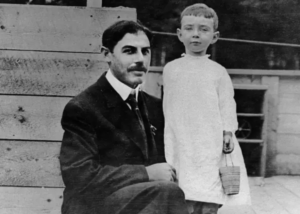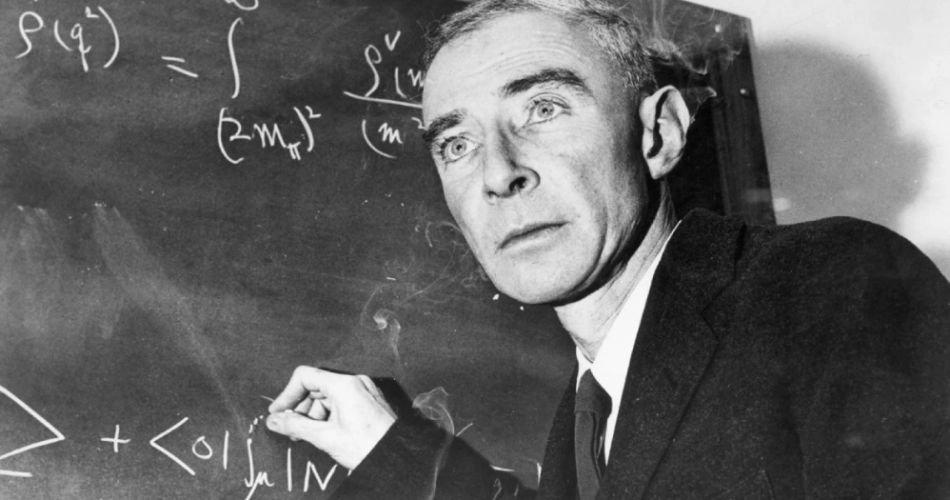J. Robert Oppenheimer, the renowned American physicist, is widely regarded as one of the most influential and iconic figures in the history of science. His contributions to the field of physics have left an indelible mark on the world, and his legacy continues to inspire and captivate scientists and the general public alike. In this article, we will delve into the life, work, and impact of this remarkable individual, exploring the brilliance that made him a scientific icon.

Oppenheimer
Contents
- 1 Early Life and Education of Oppenheimer
- 2 Oppenheimer’s Contributions to Scientific Research
- 3 Oppenheimer and the Manhattan Project
- 4 The Impact of Oppenheimer’s Work on the World
- 5 Oppenheimer’s Legacy in the Scientific Community
- 6 Controversies and Criticisms Surrounding Oppenheimer
- 7 Oppenheimer’s Influence on Future Generations of Scientists
Early Life and Education of Oppenheimer
Born in 1904 in New York City, J. Robert Oppenheimer was the son of a wealthy German-Jewish family. From a young age, he displayed a keen intellect and a deep fascination with the natural world. After completing his early education, Oppenheimer went on to study physics at the University of California, Berkeley, where he quickly established himself as a brilliant and promising young scientist.

Early Life and Education of Oppenheimer
Oppenheimer’s Contributions to Scientific Research
During his time at Berkeley, Oppenheimer made significant contributions to the field of quantum mechanics, pioneering new theories and techniques that would go on to shape the course of modern physics. His work on the theory of quantum mechanics, particularly his research on the behavior of subatomic particles, earned him widespread recognition and respect within the scientific community.
- Contributions to Quantum Mechanics:
- Developed the Oppenheimer-Phillips process, a method for the nuclear fusion of light elements
- Studied the interaction between atoms and electromagnetic radiation, leading to a better understanding of atomic structure
- Explored the concept of quantum tunneling, which has important implications in fields such as nuclear physics and electronics
- Advancements in Theoretical Physics:
- Investigated the behavior of black holes and the nature of gravitational singularities
- Contributed to the development of the Oppenheimer-Snyder collapse, a model that describes the gravitational collapse of a massive star
- Explored the concept of cosmic rays and their role in the formation of the universe
Oppenheimer and the Manhattan Project
Oppenheimer’s scientific brilliance and expertise made him an invaluable asset during the Manhattan Project, the top-secret government program aimed at developing the first atomic bomb. As the scientific director of the project, Oppenheimer played a pivotal role in the successful development and testing of the atomic bomb, a decision that would later weigh heavily on his conscience.
- Oppenheimer’s Involvement in the Manhattan Project:
- Assembled and led a team of the world’s top scientists to work on the development of the atomic bomb
- Oversaw the research and development of the bomb, including the design and testing of the first nuclear device
- Witnessed the successful detonation of the first atomic bomb, the Trinity test, in 1945
- The Moral Dilemma and Oppenheimer’s Transformation:
- Grappled with the ethical implications of his work on the Manhattan Project
- Became increasingly troubled by the devastating power of the weapon he had helped create
- Advocated for the peaceful use of nuclear technology and the international control of atomic weapons
The Impact of Oppenheimer’s Work on the World
Oppenheimer’s contributions to science and his involvement in the Manhattan Project have had a profound and far-reaching impact on the world. The development of the atomic bomb, while a significant scientific and technological achievement, also ushered in a new era of global uncertainty and the threat of nuclear war.
- The Atomic Age and the Threat of Nuclear Warfare:
- The successful detonation of the first atomic bomb marked the beginning of the Atomic Age
- Oppenheimer’s work on the Manhattan Project led to the creation of a weapon of unprecedented destructive power
- The existence of nuclear weapons has profoundly shaped global politics, diplomacy, and the threat of mutually assured destruction
- The Peaceful Applications of Nuclear Technology:
- Oppenheimer’s work also contributed to the development of nuclear power and the peaceful use of nuclear technology
- Nuclear energy has become an important source of electricity generation, with the potential to reduce dependence on fossil fuels
- Oppenheimer’s advocacy for the peaceful use of nuclear technology has had a lasting impact on the scientific community and policymakers

Oppenheimer and the Manhattan Project
Oppenheimer’s Legacy in the Scientific Community
Despite the controversy and moral dilemma surrounding his involvement in the Manhattan Project, Oppenheimer’s legacy within the scientific community remains profoundly influential. He is widely recognized as a brilliant and visionary thinker who made significant contributions to the field of physics and pushed the boundaries of scientific understanding.
- Honors and Recognition:
- Received numerous awards and accolades, including the Nobel Prize in Physics (which he declined)
- Inducted into the National Academy of Sciences and the American Academy of Arts and Sciences
- Had the J. Robert Oppenheimer Memorial Prize established in his honor, recognizing outstanding contributions to theoretical physics
- Influence on Future Generations of Scientists:
- Mentored and inspired countless young scientists, who went on to make their own significant contributions to the field
- Played a crucial role in shaping the direction of scientific research and the development of new theories and technologies
- Remains an iconic figure in the scientific community, revered for his intellectual prowess and his commitment to the pursuit of knowledge
Controversies and Criticisms Surrounding Oppenheimer
While Oppenheimer’s scientific achievements have earned him widespread admiration, his involvement in the Manhattan Project and the subsequent controversies that surrounded him have also been the subject of much scrutiny and debate. The moral dilemma he faced and his evolving stance on the use of nuclear weapons have been the focus of intense discussion and analysis.
- The Moral Dilemma of the Manhattan Project:
- Oppenheimer’s role in the development of the atomic bomb weighed heavily on his conscience
- He grappled with the ethical implications of his work and the devastating impact of the weapon he had helped create
- His shift towards advocating for the peaceful use of nuclear technology and the international control of atomic weapons was seen by some as a betrayal of his earlier work
- Allegations of Security Risks and Loyalty:
- Oppenheimer faced allegations of security risks and disloyalty during the McCarthy era
- His security clearance was revoked, and he was subjected to a lengthy investigation by the Atomic Energy Commission
- The controversy surrounding his loyalty and security concerns overshadowed his scientific achievements and legacy for a time
Oppenheimer’s Influence on Future Generations of Scientists
Despite the controversies and criticisms that have surrounded Oppenheimer’s life and work, his legacy as a scientific icon and visionary thinker continues to inspire and influence future generations of scientists. His contributions to the field of physics, his role in the development of the atomic bomb, and his evolving stance on the use of nuclear technology have all had a lasting impact on the scientific community and the world at large.
- Inspiring Future Generations of Scientists:
- Oppenheimer’s intellectual prowess and his commitment to the pursuit of knowledge have made him a revered figure in the scientific community
- His mentorship and guidance have helped shape the careers of countless young scientists, who have gone on to make their own significant contributions to the field
- Oppenheimer’s legacy continues to be celebrated and studied, with many institutions and programs named in his honor
- Shaping the Direction of Scientific Research:
- Oppenheimer’s work on quantum mechanics and theoretical physics has had a profound impact on the development of new theories and technologies
- His advocacy for the peaceful use of nuclear technology has influenced the direction of scientific research and the development of alternative energy sources
- Oppenheimer’s legacy continues to shape the ethical and moral considerations that guide scientific research and the application of new technologies
If you’re fascinated by the life and work of J. Robert Oppenheimer, I encourage you to explore more resources on this remarkable scientific icon. Visit our library of articles and videos to delve deeper into the legacy of Oppenheimer and his impact on the world of physics and beyond.
